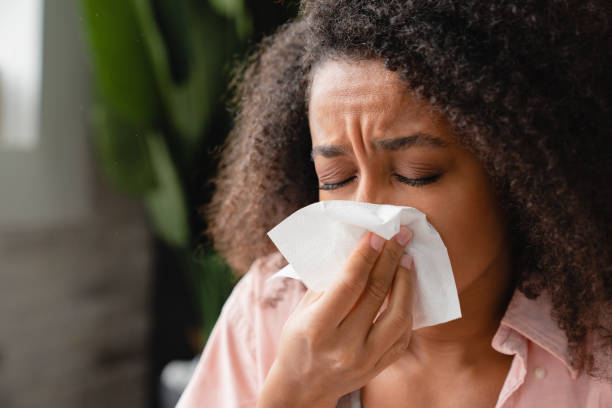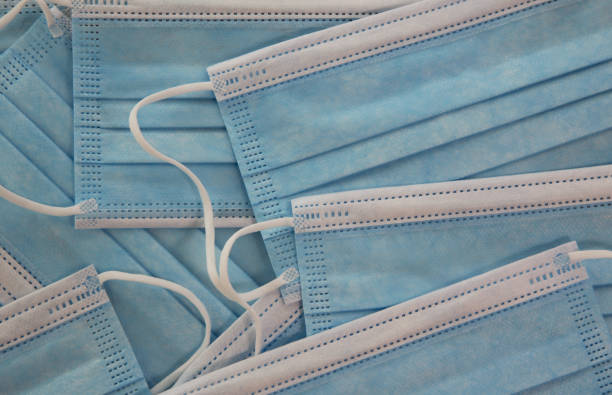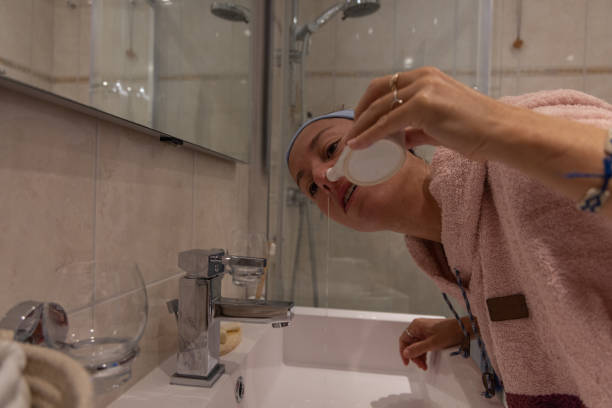Alternative Treatments, Drugs and Medications
How To Get Rid of Seasonal Allergies
As the seasons change, many people are confronted with the unwanted onset of seasonal allergies. Sneezing, itching, and congestion caused by pollen and other allergens can make it difficult to enjoy the outdoors. This article is your entire resource if you’re looking for practical strategies to get rid of seasonal allergies and enjoy each season with more ease. Discover practical advice and tactics for relieving symptoms and rediscovering the joy of each season.
What Are Seasonal Allergies?
Seasonal allergies—hay fever or allergic rhinitis—occur at certain times of the year. They’re caused by the immune system’s response to pollen, mold, or pet dander. These allergens release histamines, causing seasonal allergy symptoms.
Common Symptoms of Seasonal Allergies
Seasonal allergies can cause a variety of symptoms and severity. Common symptoms include:
- Sneezing: One of the most common seasonal allergy symptoms is sneezing. It occurs when allergens irritate nasal passages, causing reflexive air outflow.
- Itchy and Watery Eyes: Common seasonal allergy symptoms include itchy and watery eyes. When allergens touch the eyes, the immune system reacts.
- Runny Nose: Increased nasal mucus causes a runny nose. This flushes allergens and irritants from the body.
- Nasal Congestion: Swollen nasal blood arteries produce stuffy noses. This might make breathing difficult and cause facial pressure.
- Itchy Throat and Ears: Post-nasal drip develops when extra nasal mucus runs down the throat.

Understanding the Causes of Seasonal Allergies
Understanding seasonal allergy causes helps control them. Pollen is the main cause of seasonal allergies. Because pollen types vary by season, some people only have allergies during certain seasons.
Tree pollen is most common in spring, and grass pollen in summer. Fall ragweed pollen is a primary cause. In humid conditions, mold spores can cause seasonal allergies. For allergy sufferers, pet dander and dust mites can increase symptoms.

Allergy Triggers to Avoid
Avoiding allergens helps manage seasonal allergies. There are ways to reduce your allergy exposure, but it may be impossible to eradicate them. Know these allergy triggers and how to prevent them:
- Pollen: Avoid the outdoors in the morning and afternoon when pollen concentrations are high. Close windows and use AC to block pollen. Wear sunglasses and a hat outdoors to protect your eyes and hair from pollen.
- Mold Spores: Reduce interior humidity to prevent mold formation. Bathrooms and kitchens need dehumidifiers and ventilation. Basements and bathrooms should be cleaned and dried regularly. Avoid raking leaves or working in moldy areas.
- Dust Mites: Wash sheets, pillowcases, and blankets weekly in hot water. Cover mattresses and pillows with allergen-proof coverings. To eradicate dust mites from carpets and upholstery, vacuum routinely with a HEPA filter.
- Pet Dander: Pet dander allergies may require limiting animal contact. Pets should not be in bedrooms or on furniture. Wash your hands after handling animals and avoid touching your face. Consider a HEPA air purifier for pet dander.

Tips for Preventing Seasonal Allergies
Other than avoiding allergens, you can take numerous steps to reduce the impact of seasonal allergies on your daily life. Allergic symptoms can be reduced with these tips:
- Monitor Pollen Counts: Track daily pollen counts in your neighborhood. Many weather applications and websites offer this. Choose low-pollen days for outdoor activities.
- Keep Indoor Air Clean: High-efficiency air filters catch allergens. Air vents should be cleaned and filters changed regularly. Smoking can increase allergy symptoms, so don’t smoke or let others smoke at home.
- Practice Good Hygiene: Clean your hands often, especially after outdoor activities. Hands can spread allergens to your eyes, nose, and mouth, so avoid touching your face. Shower before bed to remove allergies from skin and hair.
- Wear Protective Gear: Use a mask when working or spending time outdoors during high pollen seasons. A hat and sunglasses can keep pollen out of your hair and eyes.
- Keep Windows Closed: During peak allergy seasons, close windows to reduce pollen and other irritants. Instead, circulate and filter air with air conditioning.
These precautions may limit allergen exposure and seasonal allergy symptoms.

Natural Remedies to Get Rid of Seasonal Allergies
There are various natural allergy cures and supplements to explore. While not for everyone, these methods relieve allergy symptoms for many:
- Nasal Irrigation: Neti pots or saline nasal sprays can eliminate allergens and calm irritated nasal passages. Use sterilized water or saline to reduce irritation.
- Local Honey: Some believe local honey boosts pollen allergy immunity. Although scientific proof is scarce, some may attempt it.
- Quercetin: Apples, berries, and onions contain this natural component. Anti-inflammatory qualities may lessen allergy symptoms. Ask your doctor before using quercetin in supplements.
- Butterbur: This herb has been used to cure allergies for generations. It may reduce allergy symptoms and nasal congestion. Choose a butterbur product without pyrrolizidine alkaloids.
- Essential Oils: Peppermint, eucalyptus, and lavender essential oils may reduce inflammation and congestion. Use essential oils carefully and dilute them before applying or inhaling.
If you have a health condition or take medications, check with a doctor before trying any new treatments. Natural cures may not work for everyone.

Over-the-counter medications to Get Rid of Seasonal Allergies
Seasonal allergy symptoms can be relieved quickly with over-the-counter (OTC) drugs. These drugs, which are widely accessible without a prescription, can help relieve sneezing, itching, and nasal congestion. Some over-the-counter treatments for seasonal allergies include:
- Antihistamines: These medications suppress the effects of histamines, lowering symptoms including sneezing, itching, and runny nose. They come in the form of oral tablets, nasal sprays, and eye drops.
- Decongestants: These work by restricting blood vessels in the nasal passageways to reduce nasal congestion. They come in the form of oral tablets, nasal sprays, and nasal strips. However, nasal sprays should only be taken for a few days at a time because they can create rebound congestion.
- Combination Medications: Some over-the-counter drugs mix antihistamines and decongestants to alleviate numerous allergy symptoms. Individuals suffering from nasal congestion as well as other allergy symptoms may find these combo drugs useful.
It is critical to carefully read and follow the directions on OTC drugs. Before beginning any new medications, talk with a pharmacist or healthcare practitioner if you have any underlying health concerns or are taking any other prescriptions.
When to See a Doctor for Seasonal Allergies
While most cases of seasonal allergies can be treated with over-the-counter medicines and lifestyle adjustments, medical intervention may be required in some cases. It is advised to consult a doctor if:
- Your symptoms are severe or continue to worsen despite self-care efforts.
- Your allergy symptoms have a substantial impact on your everyday life and sleep quality.
- Symptoms such as shortness of breath or chest tightness are not characteristic of seasonal allergies.
- You have underlying health issues, such as asthma, which can be exacerbated by allergies.
A doctor can assist you in diagnosing your allergies and recommending proper treatment.
Conclusion
In this article, practical techniques and tips to get rid of symptoms of seasonal allergies are discussed. This article shared concrete information to empower you in proactively addressing and lessening the impact of seasonal allergens. From pinpointing common triggers to implementing practical preventive actions, the article serves as a comprehensive guide tailored to anyone seeking relief from seasonal allergy symptoms. It also provides a complete guide for anyone seeking to get rid of seasonal allergies, whether through lifestyle changes, home remedies, or medication interventions.


